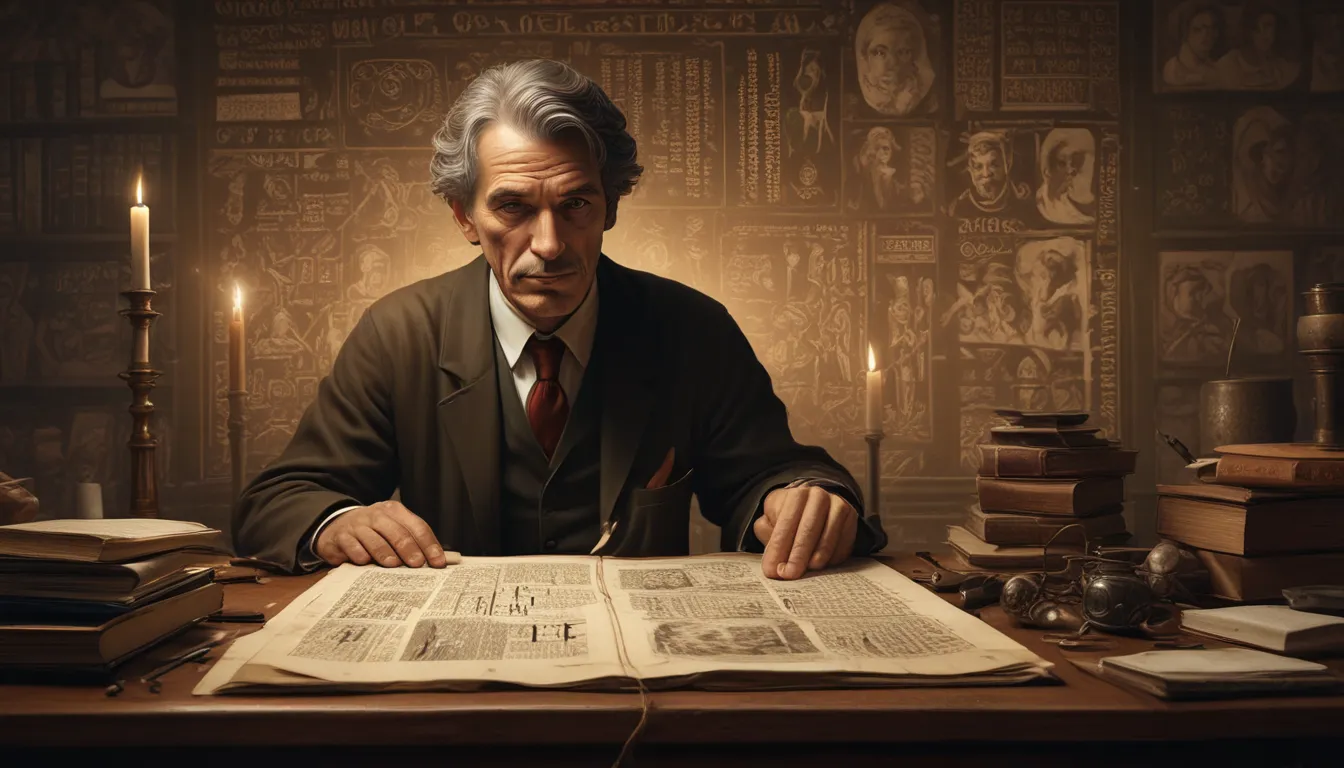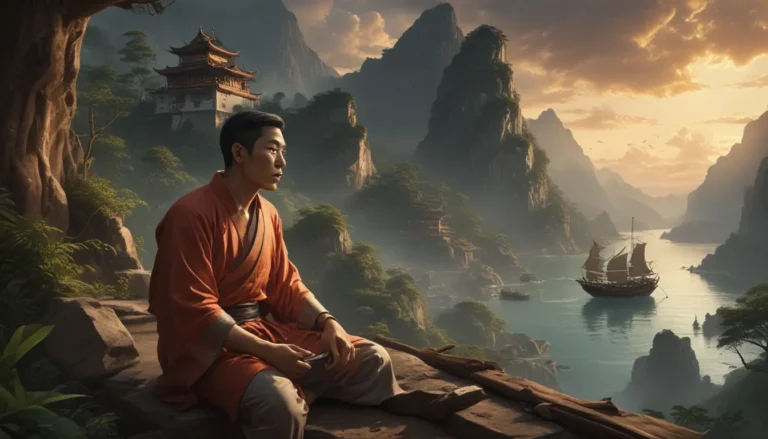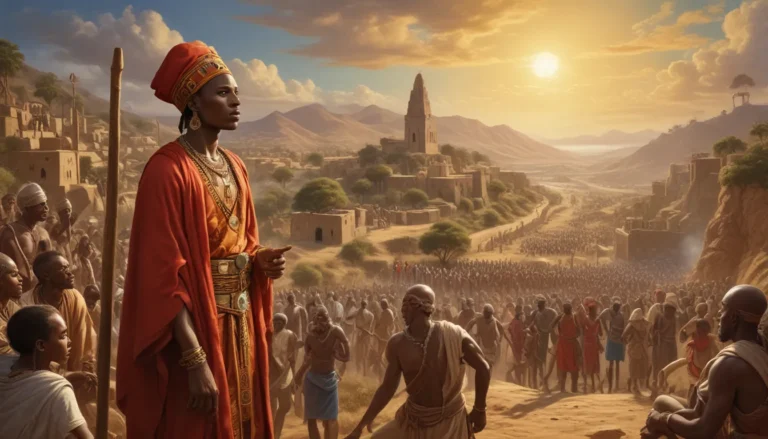The images in our articles may not match the content exactly. They are used to grab your attention, not to show the exact details in the text. The images complement the text but do not replace it.
Plutarco Elías Calles, a name that resonates with both admiration and mystery in Mexican history. Known as the “Jefe Máximo,” or Maximum Leader, Calles was a key figure in Mexican politics during the early 20th century. His presidency from 1924 to 1928 left an enduring impact on the country’s political landscape. Beyond the well-known events and policies of his time in office, there are lesser-known facets of his life that contribute to the mystique surrounding him. In this article, we will explore 16 intriguing facts about Plutarco Elías Calles that offer insight into the man behind the title. From his early life to his revolutionary endeavors and the legacy he left behind, we will uncover captivating details that reveal a multifaceted personality. Join us on a journey to unravel the mysteries and delve into the captivating life of Plutarco Elías Calles.
The Mexican Revolutionary Icon
Plutarco Elías Calles played a pivotal role in the Mexican Revolution, assuming the presidency from 1924 to 1928. He emerged as a prominent figure in the revolutionary movement, known for his strong leadership and political acumen.
Architect of the National Revolutionary Party
Calles was instrumental in founding the National Revolutionary Party (PNR), later evolving into the Institutional Revolutionary Party (PRI). The PNR aimed to uphold social justice and foster political stability in Mexico.
Champion of Land Reform
During his presidency, Calles spearheaded land reforms that sought to redistribute land from large haciendas to peasant farmers. This initiative aimed to tackle land inequality in Mexico and uplift the living standards of rural communities.
The Supreme Leader: Calles’ Legacy
Calles earned the moniker of “The Jefe Máximo,” signifying the supreme leader. His authoritarian governing style and firm control over Mexico’s political arena solidified his position as a potent figure in the nation.
The Cristero War: Clash with the Catholic Church
Calles implemented stringent anticlerical measures that escalated into a confrontation with the Catholic Church. This conflict, known as the Cristero War, stemmed from the government’s efforts to limit the Church’s influence in Mexican society.
Modernizing Mexican Education
Throughout his tenure, Calles made significant strides in modernizing the Mexican education system. He advocated for secular education and promoted the establishment of public schools nationwide.
Driving Economic Development
Calles prioritized economic development and industrialization to modernize Mexico’s economy. His policies encouraged foreign investments and bolstered industrial growth, contributing to the nation’s industrial advancement.
Exile and Continued Influence
Following his presidency, Calles encountered political opposition and was compelled into exile. He spent his retirement years in California, remaining engaged in Mexican politics and exerting influence from abroad.
Enduring Political Impact
Calles’ political legacy reverberated long after his presidency. His governance style and the prolonged dominance of the PRI in Mexican politics can be traced back to his influence and strategies.
The Maximato Controversy
The Maximato era, spanning from 1928 to 1934, witnessed Calles exert considerable control over Mexican politics despite not holding the official presidential title. This period raised concerns regarding power concentration and democratic erosion.
Architect of the Mexican Police
Calles played a crucial role in founding the Federal Public Security Secretariat, later evolving into the modern Mexican Federal Police. This institution aimed to uphold law and order across the nation.
Shaping Modern Mexican Nationalism
Calles’ emphasis on fostering Mexican identity and nationalism reshaped the contemporary perception of Mexican culture. His policies aimed to fortify national identity and forge unity among Mexico’s diverse populace.
Advocacy for Workers’ Rights
Recognizing the significance of workers’ rights, Calles implemented labor reforms during his presidency. His administration enacted laws to safeguard workers, enhance working conditions, and ensure equitable wages.
Contributions to Mexican Infrastructure
Calles directed efforts towards developing infrastructure projects nationwide. He invested in expanding road networks, constructing bridges, and enhancing transportation systems, facilitating connectivity across different regions.
The Enigmatic Legacy of Plutarco Elías Calles
Plutarco Elías Calles remains an enigmatic figure in Mexican history, with a complex legacy encompassing achievements and controversies. His influence on Mexican politics, economy, and society is a subject of ongoing analysis and debate among historians and scholars.
A Lasting Commemoration
Calles’ contributions to Mexico are commemorated through various means, including streets, monuments, and historical markers bearing his name. These serve as poignant reminders of his pivotal role in shaping Mexican history.
These 16 enigmatic facts about Plutarco Elías Calles cast a light on his influential role in Mexican politics, the Mexican Revolution, and the transformation of the country’s society and economy. From his contentious anticlerical measures to his initiatives for land reform and modernization, Calles left an enduring imprint on Mexico’s development. His intricate legacy continues to intrigue and captivate, underscoring the enigmatic nature of his persona and the imprint he left on Mexican history.
Unveiling the Enigma: Reflecting on Calles’ Legacy
In conclusion, Plutarco Elías Calles stands as a complex figure in Mexican history, leaving a profound impact on the nation’s politics, economy, and societal fabric. From his pivotal role in the Mexican Revolution to his presidency, Calles’ legacy remains a source of fascination and discourse. While hailed as a modernizer who shaped Mexico’s identity, his autocratic streak and suppression of dissent have invited critique. Whether viewed as a visionary or a despot, the undeniable truth is the significant role that Plutarco Elías Calles played in shaping Mexico’s political terrain.
FAQs About Plutarco Elías Calles
-
Who was Plutarco Elías Calles?
Plutarco Elías Calles was a prominent Mexican politician and military figure who served as the President of Mexico from 1924 to 1928. -
What were some of Calles’ major accomplishments?
Calles spearheaded policies aimed at modernizing Mexico, advocating for land redistribution, and secularizing the country. He also played a pivotal role in the Mexican Revolution and was instrumental in founding the National Revolutionary Party. -
Why is Calles considered an enigmatic figure?
Calles’ legacy is multifaceted and open to interpretation. While lauded as a transformative leader who modernized Mexico, his authoritarian tendencies and crackdown on dissent have sparked criticism. -
What impact did Calles have on Mexico’s political landscape?
Calles’ reforms and policies laid the groundwork for future leaders in Mexico, shaping the nation’s political identity. His emphasis on secularization and land redistribution left a lasting mark on Mexico’s social and political structure. -
How long did Calles serve as the President of Mexico?
Calles served as the President of Mexico from 1924 to 1928. -
What is the National Revolutionary Party that Calles helped establish?
The National Revolutionary Party, later rebranded as the Institutional Revolutionary Party (PRI), was a political party in Mexico that held power for over seven decades. Calles and other revolutionary leaders founded it to institutionalize the ideals of the Mexican Revolution.
Plutarco Elías Calles, an enigmatic leader of Mexico, left an enduring impact on the nation’s trajectory, shaping its political landscape and societal fabric. Unveiling his multifaceted persona offers a lens into a turbulent era of Mexican history, resonating with echoes of modern secularism and national identity. Delving into Calles’ legacy opens a window to explore Mexico’s rich tapestry of history, punctuated by the enigmatic figure who played a pivotal role in its narrative.






